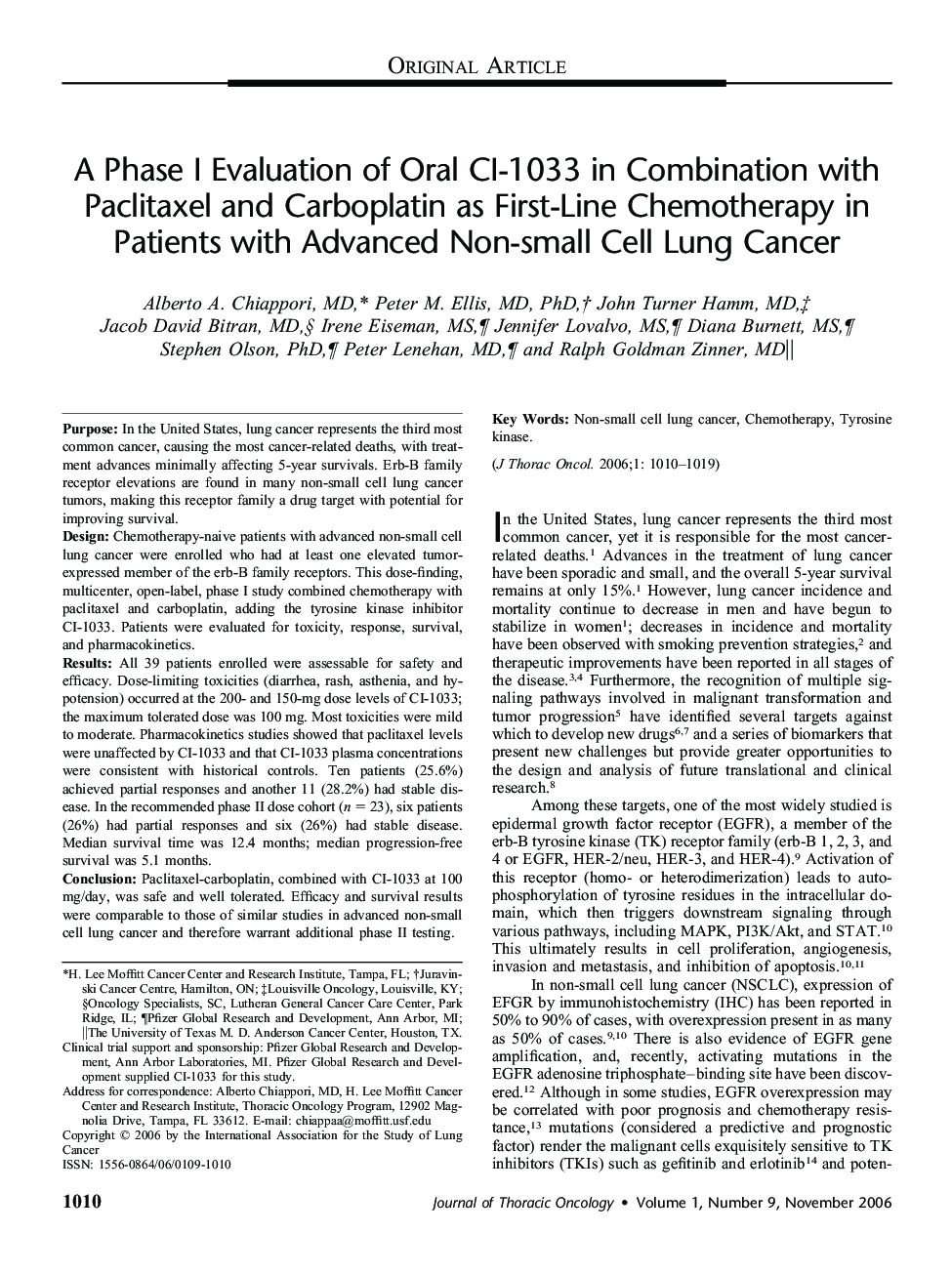| Article ID | Journal | Published Year | Pages | File Type |
|---|---|---|---|---|
| 3991682 | Journal of Thoracic Oncology | 2006 | 10 Pages |
PurposeIn the United States, lung cancer represents the third most common cancer, causing the most cancer-related deaths, with treatment advances minimally affecting 5-year survivals. Erb-B family receptor elevations are found in many non-small cell lung cancer tumors, making this receptor family a drug target with potential for improving survival.DesignChemotherapy-naive patients with advanced non-small cell lung cancer were enrolled who had at least one elevated tumor-expressed member of the erb-B family receptors. This dose-finding, multicenter, open-label, phase I study combined chemotherapy with paclitaxel and carboplatin, adding the tyrosine kinase inhibitor CI-1033. Patients were evaluated for toxicity, response, survival, and pharmacokinetics.ResultsAll 39 patients enrolled were assessable for safety and efficacy. Dose-limiting toxicities (diarrhea, rash, asthenia, and hypotension) occurred at the 200- and 150-mg dose levels of CI-1033; the maximum tolerated dose was 100 mg. Most toxicities were mild to moderate. Pharmacokinetics studies showed that paclitaxel levels were unaffected by CI-1033 and that CI-1033 plasma concentrations were consistent with historical controls. Ten patients (25.6%) achieved partial responses and another 11 (28.2%) had stable disease. In the recommended phase II dose cohort (n = 23), six patients (26%) had partial responses and six (26%) had stable disease. Median survival time was 12.4 months; median progression-free survival was 5.1 months.ConclusionPaclitaxel-carboplatin, combined with CI-1033 at 100 mg/day, was safe and well tolerated. Efficacy and survival results were comparable to those of similar studies in advanced non-small cell lung cancer and therefore warrant additional phase II testing.
